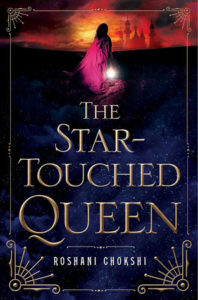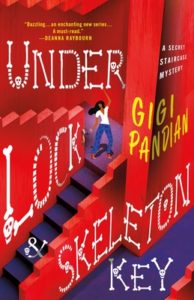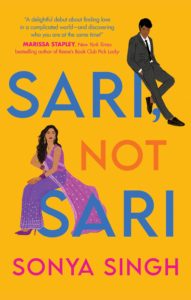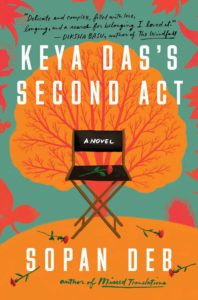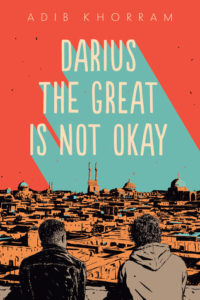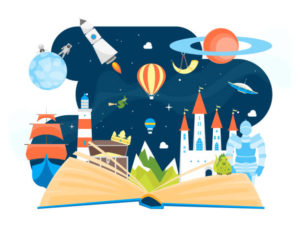A Look at Representation and Reading
Guide to Books with Indian/Desi Representation by Kanak S., 8th grade
Representation is so important. Finding books with characters that either look like me or have the same cultural background as me can be so hard. It is even harder to find books written by Indian/Desi authors as they are hardly ever spotlighted. So here is a list of books with Indian representation written by Indian authors.
The Star-Touched Queen by Roshani Chokshi
Maya is cursed princess with a horoscope that promises a marriage of death and destruction. The Raja, her father arranges a wedding for political gain which breaks her whole world apart. Soon Maya becomes the queen of Akaran and wife of a man named Amar. Or at least she though he was a man… Neither roles are what she expected: As Akaran’s queen, she finds her voice and power and as Amar’s wife she finds more about herself than she ever thought possible. But Akaran has its own secrets-Maya suspects her life is in danger. The fate of the human and Otherworldly realms hanging in the balance of Maya’s hands. She must discover an ancient mystery that spans many reincarnated lives to save herself and those she loves the most.
Under Lock and Skeleton Key by Gigi Pandian
After a disastrous accident derails Tempest Raj’s career, and life, she heads back to her childhood home in California. Though she does not want to, she comes closer to having to work for her father’s company with every passing day. Tempest goes to visit her father’s newest project, she discovers her former stage double dead inside a wall that had apparently been sealed for more than century. Tempest believes that she was supposed to be the victim of this crime so, she sets out to solve this crime. As she continues to investigate this mystery, Tempest starts to wonder if the Raj family curse had finally come for her.
Kaikeyi the only daughter of the kingdom of Kekaya group up on tales of the might of the gods. Yet she watched her father banish her mother and amount her worth to how wonderful of a marriage alliance she would be able to secure. When she called for the gods they never came. Desperate for independence she turns to the tales her mother and her used to read where she found magic that is hers alone. With this new discovered power Kaikeyi transforms herself many a times determined to create a better world for the women around her and herself. However, as the evils from her fairytales threaten cosmic order, the path she has chosen has clashed with the destiny the gods had assigned to her family. Now Kaikeyi must decide whether her resistance is worth all the chaos it will create – and what legacy she chooses to leave behind.
Manny Dogra a CEO of a successful company that helps people manage their relationship breakups. She is also planning her wedding to architect Adam Jamieson while dealing with the death of her parents. Manny never understood her immigrant parents who wanted her to be an All-American girl. She knew nothing about her South Asian heritage and it was never a problem till her parents passed away and an image of Manny had been edited to make her appear whiter. Suddenly, the women who had built an empire helping people to be true to themselves was having an identity crisis. When an annoying client by the name of Sammy Patel approaches Manny with an out of the ordinary breakup request the best solution presents itself: If they both agree to a set of terms he will give her a crash course in being Indian at his brother’s wedding. What follows is Manny indulging herself in all things Indian. Manny meets the wonderful aunties and uncles of the Patel family and discovers much more than she had ever thought possible.
Keya Das’s Second Act by Sopan Deb
Shantanu Das has been living in the shadows of his past. In his fifties, he finds himself isolated from his traditional Bengali community after his divorce from his wife Chaitali; he hasn’t had a conversation with his eldest daughter Mitali in months; and he lives everyday with regret for not accepting his teenaged daughter Keya after she came out as gay. As the anniversary of Keya’s death approaches, Shantanu wakes up alone in his suburban New Jersey home and realizes it is time to move on. This is when he discovers a box in his attic that could change everything. He begs Mitali to come home. She does come home out of pity not realizing that her life is about change. Inside the box is an unfinished manuscript that Keya and her girlfriend were writing. Neesh Desai, a new love interest for Mitali with regrets of his own, comes up with an idea, one that would give a sense of permanence to Keya: what if they are to stage the play? It could be an homage to Keya’s memory, and a way to make amends. First, the Dases need to convince Pamela Moore, Keya’s girlfriend, to give her blessing. And they have to overcome ghosts from the past they haven’t met yet.
Hani and Ishu’s Guide to Fake Dating by Adiba Jaigirdaz
Everyone likes Humaira Khan, but when she comes out as bisexual to her friends, they invalidate her identity saying that she can’t be bisexual if she’s only dated guys. Hani blurts out that she’s in a relationship with a girl her friend’s absolutely hate Ishita Dey. Ishu is an academic overachiever who hopes that becoming head girl will set her on the right track to college, the complete opposite of Hani. Ishita agrees to help Hani, if Hani will help her become more popular so she has the chance to become head girl. Despite their pact they start to have real feelings for each other. However, relationships are complicated, and certain people will do anything to stop two Bengali girls from getting their happily ever after.
Why Darius the Great is One of the Best Mixed Representations Out There by Naomi G., 8th Grade
Recently I read Darius the Great is Not Okay, and it blew my mind with how much it related to me. I related to this book on such a deeper level than others because, Darius, our protagonist is biracial, and most of the book follows him going to Iran for the first time, while dealing with clinical depression, and learning the ways of friendship.
Darius is half Persian. His mother is Persian and his father is white. We see how he struggles with feeling Persian enough, which is a similar problem for many mixed children because you’re too much and not enough. For example, Darius gets picked on at school for being different, too Persian, but in Iran he feels isolated and different because in this case he is not Persian enough. I feel the same thing growing up in a Jewish school where everybody spoke English, and I would struggle knowing some English words, or I had different ways of saying things; I was different. Though when I was with my mom’s side of the family, from Costa Rica, it was also hard because I was isolated and had a hard time fluently speaking Spanish because I was scared my pronunciation still wasn’t good enough, so again I was different; it made me feel at though I just wasn’t Hispanic enough. I could barely speak Spanish, and I still struggled with English.
To this day I still have the same struggle because I had to pick up how to speak from my surroundings, from home, similar to Darius. My mom spoke a different language but never ended up teaching me, at least not very well. Darius’s mother tried to teach him proper Farsi too late, so he also has the struggle of not being able to communicate.
This book shows how being biracial/mixed can be a struggle, yes its full of different cultures, but sometimes it can be hard to handle. This book and the sequel continue to represent mixed BIPOC in the best possible way.
Reading Opens Up Portals to Your Imagination by Jaz P., 7th Grade
What does reading have to do with your imagination you may ask? Well, for starters, it expands it, leading you on to new journeys filled with more adventure and excitement! The best thing about reading is that there is a book for everyone. From romance to science fiction to horror to comedy, there’s books about almost anything you can think of. Once you find one you like, you’ll learn to love reading it and want to continue more. Reading doesn’t just open up new portals to your imagination, it even increases your vocabulary, too. One benefit to reading is that it will cause you to look at things from different perspectives, and you’ll learn to appreciate it for what it is. According to thebookbuff.com reading can enhance your problem solving skills and also preserve your memory as well. Studies have shown that if you continue to read even after retirement 73% of those who do so won’t develop dementia. Adding on, it triggers one’s curiosity. You may have questions about everyday items but after reading, trust me, you’ll have plenty more. You can be more creative, too. Thebookbuff.com states that “a side-effect of this imagining of different scenarios is that it leads to exploring new possibilities. In this pursuit of your imagined solutions, you acquire more and more knowledge and skills.” This is added on to the idea of how it can trigger your curiosity. Who knew reading had so many up-sides?!
Thank you so much to my student voices today and their look at representation and reading!

